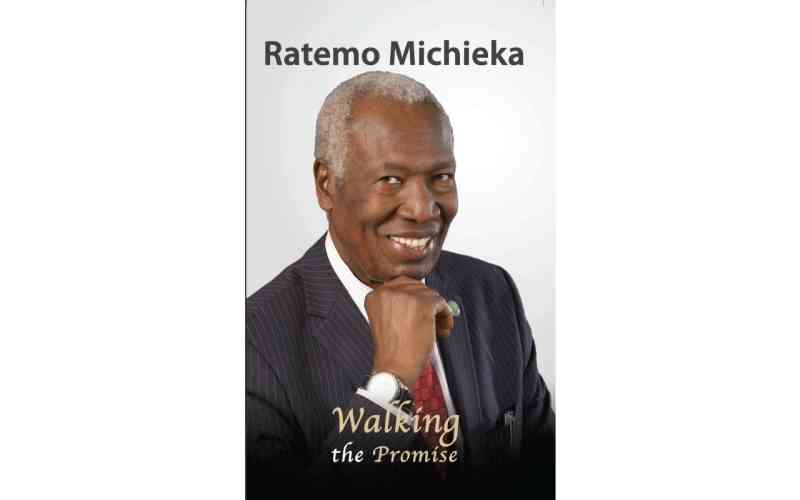
Did you know that the proper way to address a university vice-chancellor (VC) is “Your Magnificence?”
“The title is equivalent to ‘Your Grace’ or ‘My Lord’ and signifies the enormous weight accorded to academics. The title was borrowed from the majestic gowns the vice-chancellors wear, which are derived from Greece and Italian ancient church gowns.
A lot of VCs do not know that, but that is one of the neat titbits you learn as you read Walking the Promise, the autobiography of JKUAT's founding Vice Chancellor, Professor Ratemo Michieka.
The book starts a little slow, with a straight-to-the-point style of writing, as he describes his early years in school and growing up, but then this sets a very good foundation for understanding his personality as it remained consistent throughout his life, and the pacing soon picks up after that.
You can tell that the professor always placed a premium on discipline and he has a remarkable memory, remembering the names of all his teachers, perhaps unsurprising for an academician. He recounts a horror story with a teacher Barnabas that won’t leave your mind for a while as you read.
The professor also talks about how his uncle, who was a traditional healer who used successful methods and plants, many of which are now lost to the world, inspired him to learn more about the plant kingdom.
His life progresses through the pages to his stint at a bank, and you can see the seeds of corruption take root in the country, the Beatles who were the hit then get a mention, and so do Elliot’s Bread and Kenya Bus Service, who were always on time and clean.
You also get to read about his life at Rutgers University in the US, where he was a studious learner learning about liberation movements happening all around the world and then in places like South Africa.
How he approached his studies and research and his interactions with the lecturers there is awe-inspiring, with a few humorous moments planted throughout the book such as the moment he found out he had passed his MSc exam: “His words seemed to rise from the cloud of smoke in the room. I forgot my allergy to cigarette smoke and jumped up in excitement,” reads a section of the book.
Few know what it takes to do a thorough research project. The book also talks about the process of acquiring his PhD, how he got into weed research and the importance of research for a country’s development.
“The less a county invests in research, the longer it will lag in development… The fast-developing nations in Africa such as Egypt, South Africa and Morocco invest in research. Their GDP is much higher than other African countries,” reads the book.
Many people would find it difficult to resist the kind of lucrative offers he got after his Ph.D., being a highly sought-after researcher, choosing to work in Africa despite it being a significant pay cut.
It is an interesting journey through his career, from life and culture in Nigeria, visiting a juju practitioner, to the story of Prof Joseph Maina Mungai and his smuggling of a cadaver.

Learning about the rapid expansion of universities in recent years will probably be one of the most disheartening things you ever read about – how it was done is a stark contrast to the incredibly thorough years-long process JKUAT went through to become a full-fledged university.
You will learn of Professor Ratemo’s journey through it, from deputy principal to vice chancellor, to his abrupt removal from JKUAT by late President Mwai Kibaki to head Nema.
Nema is a separate journey, very different for a man who had been in academia all his life. In the book, you get to see the genesis of some of Nema’s wrangles and understand a little bit about why it is the way it is.
The professor comes full circle when he gets back into academia pre-Covid and it all comes to a close post when regular forms of teaching go out the window and they have to adjust. He talks about family and the origins of his people, which in itself is a lesson in history and a story collection of the good, the bad and the ugly in his life.
It is a fascinating read that will help you learn more about JKUAT’s founding vice chancellor and give you pause about how things are done in Kenya.